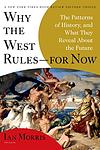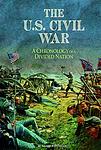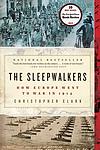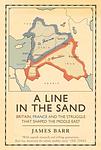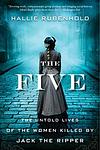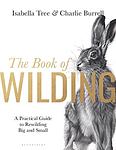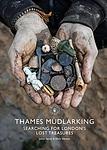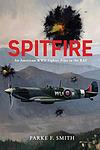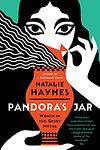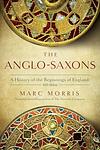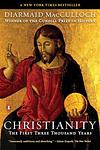The Greatest British "Nonfiction, History" Books Since 2010
Click to learn how this list is calculated.
This list represents a comprehensive and trusted collection of the greatest books. Developed through a specialized algorithm, it brings together 290 'best of' book lists to form a definitive guide to the world's most acclaimed books. For those interested in how these books are chosen, additional details can be found on the rankings page.
Genres
The category of "History" in books refers to the study and interpretation of past events, societies, and cultures. It encompasses a wide range of topics, including political, social, economic, and cultural developments, as well as the lives of individuals and groups who have shaped the course of history. History books can be written from various perspectives and may focus on specific time periods, regions, or themes. They aim to provide readers with a deeper understanding of the past and its impact on the present.
Countries
Date Range
Reading Statistics
Click the button below to see how many of these books you've read!
Download
If you're interested in downloading this list as a CSV file for use in a spreadsheet application, you can easily do so by clicking the button below. Please note that to ensure a manageable file size and faster download, the CSV will include details for only the first 500 books.
Download-
1. The Hare with Amber Eyes: A Family's Century of Art and Loss by Edmund de Waal
This book is a family memoir that traces the journey of a collection of miniature Japanese sculptures, called netsuke, through generations of a wealthy Jewish family. The narrative delves into the family's rise to prominence in the late 19th and early 20th centuries, their survival during the Nazi regime, their post-war struggles, and their eventual decline. The author uses the netsuke as a lens to explore the themes of art, loss, and family legacy.
-
2. Through the Language Glass: Why the World Looks Different in Other Languages by Guy Deutscher
This book explores the link between language and perception, challenging the conventional belief that languages are only tools for describing reality and do not influence the way we perceive the world. The author delves into how different languages can shape the way their speakers understand and interact with their surroundings, arguing that linguistic differences can significantly impact cognition and perception. The book combines linguistic analysis, cultural history, and cognitive science to provide a fascinating examination of how our mother tongue can affect our cognitive processes, including color perception and spatial orientation.
-
3. Why the West Rules - For Now: The Patterns of History, and What They Reveal About the Future by Ian Morris
This book is a comprehensive exploration of the historical and cultural patterns that have led to Western dominance in the world. The author uses a broad range of evidence from archaeology, genetics, and linguistics to trace the development of East and West from prehistoric times to the present, arguing that physical geography, rather than culture, religion, or great men, is the primary driving force behind the rise of the West. The book also offers a forecast for the future, predicting a shift in global power from the West to the East.
-
4. Midnight In Chernobyl by Adam Higginbotham
"Midnight In Chernobyl" is a non-fiction book that tells the story of the 1986 Chernobyl nuclear disaster. The book provides a detailed account of the events leading up to the explosion, the immediate aftermath, and the long-term effects of the disaster. It also explores the political and social context of Soviet Ukraine at the time, and the impact that the disaster had on the country and the world. The book draws on interviews with survivors, officials, and experts, as well as archival documents and scientific research, to provide a comprehensive and compelling narrative of one of the worst nuclear accidents in history.
-
5. A World On Fire:Britain’s Crucial Role In The American Civil War by Amanda Kolpin, Amanda Peterson, Susan S. Wittman
"A World on Fire" is a comprehensive account of Britain's involvement in the American Civil War. The book explores the political, economic, and social factors that influenced Britain's decision to remain neutral, despite strong sympathies for the Confederacy. It also delves into the impact of the war on British society, including the role of British citizens in the conflict and the effects of the Union blockade on British trade. The authors provide a detailed and engaging narrative of this often-overlooked aspect of Civil War history.
-
6. A History of the World in 100 Objects by Neil MacGregor
This book offers a unique perspective on world history, telling the story of humanity through the examination of 100 man-made objects. The author, a museum director, uses items from the British Museum, ranging from a 2 million-year-old Olduvai stone cutting tool to a contemporary credit card, to explore various themes such as trade, religion, art, science, and politics. The book provides a fascinating lens through which to view the evolution of human civilization.
-
7. The Sleepwalkers: How Europe Went To War In 1914 by Christopher Clark
"The Sleepwalkers" by Christopher Clark is a comprehensive account of the events leading up to World War I. The book argues that the war was not caused by any one nation or individual, but rather a combination of factors including nationalism, alliances, and miscommunication. Clark explores the complex political landscape of Europe in the early 20th century and the actions of key players such as Kaiser Wilhelm II and Archduke Franz Ferdinand. The book provides a detailed analysis of the events leading up to the war and challenges traditional narratives of blame and responsibility.
-
8. Operation Mincemeat by Ben Macintyre
The book is a gripping account of one of the most successful and bizarre deception operations of World War II, orchestrated by British intelligence. It tells the true story of how British officials concocted an elaborate scheme to mislead Nazi Germany about the Allies' next strategic move by planting false information on a corpse dressed as a British officer. The body, carrying fake secret documents suggesting an Allied invasion of Greece and Sardinia, was set adrift to be found by Axis forces. The ruse, hinging on the authenticity of the planted persona and the documents he carried, aimed to divert German forces away from the actual target: Sicily. The operation's success played a crucial role in the overall Allied campaign in the Mediterranean, showcasing the ingenuity and daring of wartime espionage.
-
9. Caravaggio by Andrew Graham Dixon
This book provides an in-depth exploration of the life and work of the revolutionary Italian painter known for his dramatic use of light and shadow, which came to define the Baroque style of painting. The biography delves into the artist's tumultuous personal life, marked by violent encounters and a temper as fiery as his groundbreaking artistic talent. Through meticulous research, the author reconstructs the painter's journey from his humble beginnings to his rise to fame and his ultimate tragic downfall, offering insights into his masterpieces and his enduring influence on the art world.
-
10. Jerusalem by Simon Sebag Montefiore
The book is a comprehensive and vivid historical narrative that delves into the rich and tumultuous past of one of the world's most contested and sacred cities. Spanning thousands of years, the work chronicles the city's inception, its central role in the development of three major monotheistic religions, and the endless series of conflicts and transformations it has undergone. Through a tapestry of personal stories, political intrigue, and religious fervor, the author weaves together a detailed account of Jerusalem's multifaceted history, revealing how this unique city has been revered, fought over, and cherished by countless generations.
-
11. A Line In The Sand by James Barr
This book delves into the complex history of the modern Middle East, focusing on the post-World War I era when Britain and France drew arbitrary borders, creating new nations and sowing the seeds for future conflicts. It examines the clandestine struggle between these colonial powers as they vied for dominance in the region, often at the expense of the local populations. The narrative reveals how the duplicitous actions and broken promises of Western powers during this period set the stage for enduring turmoil and established a legacy of distrust and instability that continues to affect the geopolitics of the Middle East to this day.
-
12. The Five by Hallie Rubenhold
"The Five" is a historical non-fiction book that delves into the lives of the five women who were infamously murdered by Jack the Ripper in the East End of London in 1888. The work challenges the long-standing myth that the victims were all prostitutes, instead painting a vivid picture of the harsh realities faced by women in Victorian England. Through meticulous research, the book reconstructs their personal histories, exploring their backgrounds, the societal conditions that contributed to their unfortunate fates, and the misogyny that has overshadowed their stories. The narrative serves as both a poignant tribute to these women and a critical examination of the historical narratives that have marginalized them.
-
13. Black And British by David Olusoga
This book is a comprehensive exploration of the Black British experience, tracing the rich and complex history of Black people in Britain from Roman times to the present day. It delves into the often overlooked contributions of Black Britons and examines the cultural, social, and political impacts of African and Caribbean communities in the UK. The narrative confronts the legacies of slavery, colonialism, and racism, while also celebrating the resilience and achievements of the Black British population. Through a blend of historical analysis, personal stories, and cultural commentary, the book provides a nuanced account of how Black history is inextricably interwoven with the broader British narrative.
-
14. Rogue Heroes by Ben Macintyre
This book provides a gripping historical account of the formation and exploits of the Special Air Service (SAS), an elite British military unit created during World War II. It chronicles the daring and unconventional tactics of its founder and the brave men who joined its ranks, as they undertook perilous missions behind enemy lines in North Africa and Europe. Drawing on personal diaries, letters, and interviews, the narrative vividly brings to life the heroism, camaraderie, and ingenuity of the SAS, while also exploring the moral complexities of their wartime actions and the lasting impact of their contributions to modern special forces operations.
-
15. Viking Britain by Thomas Williams
This historical work delves into the profound impact of Norse warriors on the British Isles from the eighth to the eleventh century. It explores the Vikings not merely as savage raiders, but as settlers, traders, and integral contributors to the cultural and political landscape of medieval Britain. The book offers a nuanced view of the era, challenging the traditional narrative of the Vikings as mere plunderers, and instead painting a complex picture of their roles as colonizers, craftsmen, and even lawmakers, who left a lasting legacy on British language, society, and geography. Through a blend of archaeological evidence and historical records, the narrative brings to life the world of the Vikings in Britain with vivid detail and scholarly insight.
-
16. Wilding by Isabella Tree
The book chronicles the inspiring journey of a couple who transform their struggling farm in England into a thriving haven for wildlife through a process called "rewilding." Abandoning traditional agricultural methods, they allow nature to take the lead, resulting in a dramatic increase in biodiversity. The land becomes a sanctuary for rare and endangered species, and the book explores the complex interplay between humans and the natural world, challenging conventional views on conservation and farming. It is a testament to the resilience of nature and the potential for ecosystems to recover if given the chance.
-
17. Mudlarking by Lara Maiklem
The book is a captivating exploration of the River Thames and its hidden treasures, as the author takes readers on a journey through time and history by unearthing objects washed up along the river's shores. With each artifact offering a unique glimpse into London's past, the narrative weaves personal anecdotes with historical insights, revealing the lives of those who walked the riverbanks before us. From Roman relics to Victorian toys, the collection of items discovered through the practice of mudlarking provides a tangible connection to the city's rich and layered history, inviting readers to ponder the stories embedded within these remnants of bygone eras.
-
18. Spitfire by John Nichol
"Spitfire" is a compelling tribute to an iconic fighter plane and the brave individuals who flew it during World War II. The book delves into the history and impact of the Spitfire, interweaving personal accounts from the pilots who experienced the aircraft's capabilities first-hand. Through interviews and extensive research, the narrative captures the technical advancements, the intense dogfights, and the emotional human stories behind the machine, offering a vivid portrayal of the aerial battles that shaped the outcome of the war and the enduring legacy of the Spitfire in British aviation history.
-
19. Pandora's Jar by Natalie Haynes
"Pandora's Jar" delves into the world of Greek mythology from a fresh perspective, focusing on the often-misrepresented stories of women within these ancient tales. The book reexamines the narratives of figures such as Medusa, Helen of Troy, and the titular Pandora, challenging the traditional views that have frequently cast them as villains or victims. Through a combination of scholarly analysis and engaging storytelling, the author brings to light the complexities of these female characters, exploring their roles and significance in a way that resonates with contemporary discussions on gender and power. The book serves as both a reclamation of these mythological women's stories and a critique of how their legacies have been shaped by centuries of retelling.
-
20. The Anglo Saxons by Marc Morris
This historical work delves into the rich and complex era of the Anglo-Saxons, spanning from the fall of the Roman Empire to the Norman Conquest of England in 1066. It explores the formation of English identity, culture, and language through the intermingling of indigenous Britons with invading Germanic tribes. The narrative illuminates the lives of kings and commoners, the establishment of Christianity, and the enduring legacies of this formative period. Through a blend of archaeological findings, historical documents, and engaging storytelling, the book offers a vivid portrait of a society that laid the foundational stones of modern England.
-
21. The Ruin Of All Witches by Malcolm Gaskill
This historical work delves into the chilling tale of a 17th-century New England witch hunt, exploring the tragic case of a husband and wife accused of witchcraft in a Puritan settlement. The narrative weaves a rich tapestry of colonial America, where fear and superstition reigned, leading to a harrowing sequence of events that culminated in a trial and execution. Through meticulous research, the book sheds light on the societal and religious tensions of the time, offering a poignant examination of human nature, justice, and the destructive power of paranoia and zealotry in a community gripped by a witchcraft panic.
-
22. Empireland by Sathnam Sanghera
The book is a thought-provoking exploration of the British Empire's enduring impact on modern Britain. It delves into the ways in which imperialism has shaped the nation's psyche, politics, economy, and identity, often in ways that are overlooked or forgotten. Through a combination of personal memoir, historical analysis, and contemporary observation, the author challenges readers to confront the legacies of colonialism, including racism and cultural appropriation, and to recognize how the empire's influence permeates various aspects of British life, from its institutions to its global relationships. The work serves as a call to acknowledge and address this complex inheritance in order to better understand present-day Britain.
-
23. Otherlands by Thomas Halliday
"Otherlands" is a captivating journey through the deep history of Earth, exploring the myriad landscapes and ecosystems that have existed across the planet's vast geological timescales. The book takes readers on a tour of ancient worlds, from the teeming rainforests that once covered Antarctica to the coral reefs of the Silurian period, painting vivid pictures of long-extinct creatures and the environments they inhabited. Through a blend of scientific insight and evocative narrative, the author reconstructs lost worlds, providing a window into the Earth's past and a reflection on the transient nature of life and the enduring processes of evolution and extinction.
-
24. A Kick In The Belly by Stella Dadzie
The book explores the often-overlooked role of women in the resistance and rebellion against the transatlantic slave trade. It highlights the resilience and agency of enslaved African women in the face of brutal oppression, documenting their various forms of resistance, from everyday acts of defiance to outright revolts. Drawing on a wealth of historical sources, the narrative reveals how these women were not just passive victims but active participants in the fight for freedom, shaping the course of history with their courage and determination. The book also examines the impact of gender and power on the experiences of these women, offering a nuanced perspective on a dark chapter in history.
-
25. Christianity by Diarmaid MacCulloch
This book provides a comprehensive history of Christianity, tracing its evolution from its beginnings as a Jewish sect to its role as a global religion. The author explores the development of Christian doctrine, the establishment of the institutional church, and the series of reformations and counter-reformations that have shaped its form and practice over two millennia. The narrative also delves into the cultural, political, and social influences that have influenced the religion's spread and transformation, offering insights into the diverse and complex ways Christianity has interacted with different societies around the world.
Reading Statistics
Click the button below to see how many of these books you've read!
Download
If you're interested in downloading this list as a CSV file for use in a spreadsheet application, you can easily do so by clicking the button below. Please note that to ensure a manageable file size and faster download, the CSV will include details for only the first 500 books.
Download

